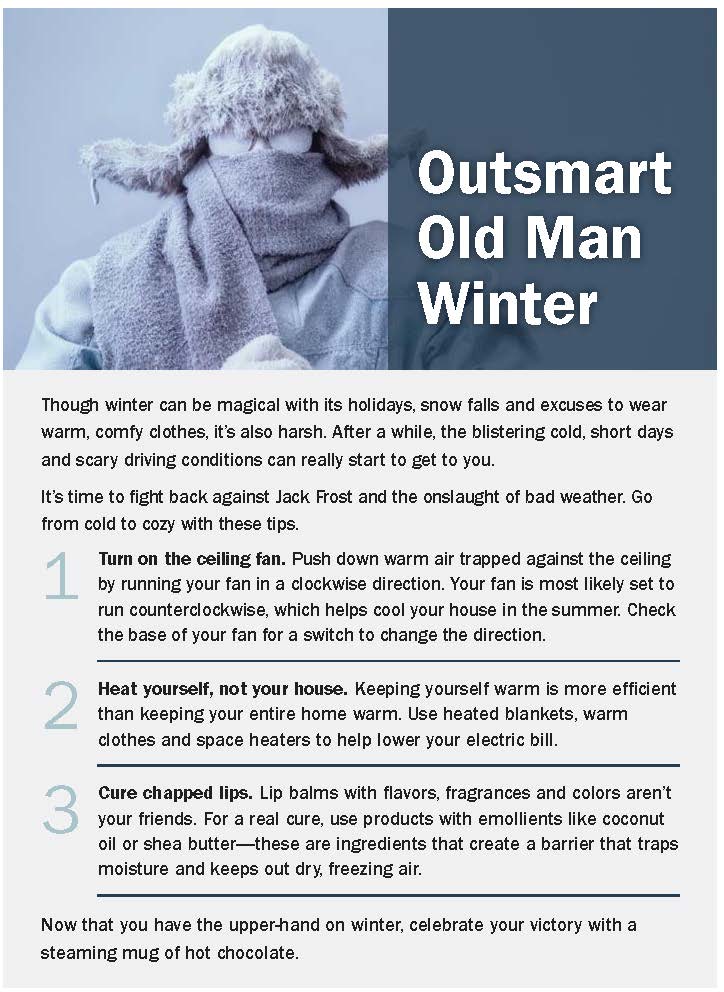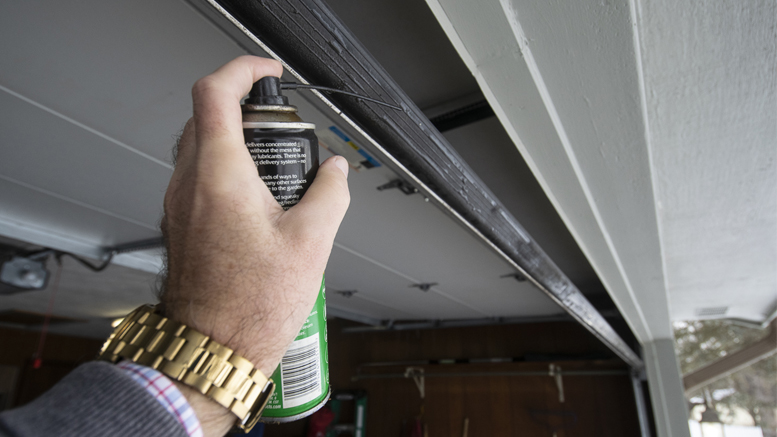By: Friends and Associates of MuncieJournal.com—
Muncie, IN— A polar vortex is expected to arrive in Muncie and Delaware County this week, bringing below zero temperatures with wind chills of up to minus 35 degrees or more. We asked friends and associates of MuncieJournal.com for their best tips in preparing for super-cold temperatures.
Minimize Sticking Using Silicone-Based Spray On Your Garage Door
It’s a good idea to spray some silicone lubricant on the rubber at the bottom of your garage door to keep the door from sticking to the floor during really cold weather. If the door sticks, when you attempt to raise it, the door can become damaged and perhaps even break the springs. That can be dangerous and also costly. Spray the lubricant on the rubber across the entire length of the door to minimize the door sticking/freezing to the pavement.
Inspect Your Furnace Filters
Swap out furnace filters if they are dirty. (Also cold air returns if they have filters.) Dirty, clogged filters will make the furnace work much harder during super-cold weather.
Know Where Your Cold Water ShutOff Valves Are Located
Edward Conley stressed how vitally important it is that every homeowner know where the cold-water shutoff valves are located within their home. If you have a pipe burst, you’ll want to turn that valve off immediately and not have to learn where it is under duress when water is gushing all over the place. Also, if you turn off the water, make sure to turn off your water heater, to prevent damage if it is not entirely full. Edward also said if something happens to your power, or your furnace isn’t keeping up, use kerosene heaters with extreme caution. Keep them in the middle of the room, far away from any materials. Kerosene heaters are a leading cause of fires in the winter.
Tips from IU Health/Ball Memorial Hospital
—If you park your vehicle outside, pull your wipers up away from your windshield so they don’t freeze to it.
—Charge up a couple of extra power banks so you will have power for your phone even if the electricity goes out.
—Locate your candles and matches/lighters now, in case of a power outage.
—Keep in your car: flashlight, blanket, flares, shovel, broom, shingles or sand, first aid kit, extra coat/gloves/hat/scarves.
—Fill up your automobile gas tank now; fill up a couple of extra gas jugs for your generator.
— Download the FEMA app to be “in the know” on winter weather and other emergency situations.

Photo courtesy of Dawn Brand Fluhler
Keeping Cold Air Outside
You would be surprised how much cold air can come into your home through your AC outlets. A quick way see if cold air is coming through yours is to take a small sheet of toilet paper and hold it in front of your outlet. If the paper moves, (seems to blow around) then you have cold air coming in through the outlet. An inexpensive remedy is to purchase an outlet gasket for each outlet. Outlet gaskets will help stop cold air from coming into your home. Rick Martinez also suggests rolling up a towel and putting work gloves on both ends. Place the towel in front of drafty doors to limit cold air flow into the house and help keep cold air out.
Keep A Cooler At-The-Ready
Eva Lantz suggests you keep a cooler ready in case of an extended power outage. Your refrigerated food can be put in the cooler and placed in a safe place outdoors to keep items like meat from going bad.
Cold Weather Reduces Humidity Levels In Your Home
Humidity levels in your home go down during cold weather. Way down. Your furnace and fireplace suck moisture out of your home. Delaware County EMS informed me of an uptick in the number of calls for nosebleed issues relating to low humidity levels around the area. Get a humidifier and try to get your relative humidity level to 40%. As an added benefit, your home will feel warmer to you. If you do not have a humidifier, Cheryl Moore suggests placing 5 gallon buckets of water in each major room near a supply vent. You will be surprised at how fast the water evaporates and increases the humidity level.
Auto Tips
Kurt Speed suggests if you have no garage, a “trouble light” with a 60 watt bulb under the hood near the oil pan often makes the difference between starting and not starting a vehicle in very cold weather. Sean Mattingly suggests that if it is cold at night, don’t point the front of your car into the wind. The colder the engine is, the harder it is for the many rotating parts to get going.
Finally, if none of the tips above work for you, Greg Bashenow suggests you “Get on a flight to Jamaica.”
Safety tips from the Indiana State Fire Marshal. Video below.



